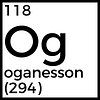Take a photo of a barcode or cover
challenging
informative
reflective
sad
slow-paced
Plot or Character Driven:
A mix
Strong character development:
No
Loveable characters:
Complicated
Diverse cast of characters:
No
Flaws of characters a main focus:
Complicated
lighthearted
relaxing
slow-paced
I'm surprised the baby ended up being strangled to death and didn't just die of fetal alcohol syndrome. Hemingway also missed a tremendous opportunity to do a title drop in neglecting to blow off Tenente Henry's arms at any point in this story.
But really, it was kind of all over the place. Parts four and five were like a completely different story from parts 1 and 3, and 2 was more like a prequel to the end than anything. I don't understand why so many people liked this. I wasn't able to get attached to any of the characters. The only two that didn't just come off as completely bland to me were the priest, Henry's roommate, and the old man playing billiards at the hotel, and I've definitely read more interesting characters than them. Glad this looks like the last Hemingway on my reading list.
But really, it was kind of all over the place. Parts four and five were like a completely different story from parts 1 and 3, and 2 was more like a prequel to the end than anything. I don't understand why so many people liked this. I wasn't able to get attached to any of the characters. The only two that didn't just come off as completely bland to me were the priest, Henry's roommate, and the old man playing billiards at the hotel, and I've definitely read more interesting characters than them. Glad this looks like the last Hemingway on my reading list.
I could not finish this book. It was just too painful for me to read. After some initial buildup I felt that the story languished for far too long.
emotional
sad
medium-paced
Plot or Character Driven:
A mix
Strong character development:
No
Loveable characters:
Complicated
Diverse cast of characters:
No
Flaws of characters a main focus:
No
"A Farewell to Arms" is a largely biographical depiction of Hemingway's experience as an ambulance driver in Italy during World War I, as well as his romance with a nurse who cared for him during his recuperation from injuries sustained during a mortar attack. During a tour of his childhood home in Oak Park, IL several years ago, I learned more about Hemingway's WW1 life and was intrigued to read "AFTA." However, I didn't get around to it until my Great Books book club selected it for the November read (Veteran's Day!!).
Interestingly, many reviewers have commented on their displeasure with yet another prototypical Hemingway hero. Frederic Henry does display some "manly" characteristics, but often these behaviors often arise in the face of fear and uncertainty. "Manly" behaviors are expected of soldiers in wartime. Was Frederic Henry really brave? Or was he just a human in a rather scary situation, sometimes sitting and waiting for hours, making pasta in a tin bowl (or was it a helmet?), foraging for wine in abandoned farmhouses. He didn't always exhibit grace under pressure, Hemingway's hallmark character trait, such as the quite shocking scene in which one of his fellow soldiers is shot for attempting to desert. Really, Hemingway uses the novel as a vehicle to show just how tedious and troublesome war is. It is not glamorous. It is not something over which soldiers have control regardless of their individual bravery. It changes participants in ways they would rather not be changed, both physically and mentally.
Love, similarly, isn't shown as perfection and happy frolicking in a meadow, despite some rather idyllic scenes for Frederic and Catherine. Well, I don't know how idyllic hospital sex is night after night, but it was likely a reaffirmation of life after seeing so much carnage. Their relationship begins as a game and a rebound , develops into true feelings masked by sometimes flippant banter, and then ends tragically. Some might argue that Frederic never really loves Catherine, isn't terribly upset about their child being stillborn, and uses their relationship as an escape from the vagaries of war. But, maybe his seemingly cold reaction at the end are a form of shock after the one-two punch of both his child's and his love's death following up the initial PTSD caused by WW1.
All of these themes are encompassed in Hemingway's sparse, journalistic writing style, which really keeps the pace of the novel moving and makes the reader feel as thought they are there on the battlefield, in the hospital, on the lake escaping to Switzerland. His modernist reaction to his mother's wordy Victoriana certainly shows in this novel. Some folks now find his rat-a-tat phraseology jarring and annoying, but I found it tight and full of meaning. His minimalism took ages to craft and isn't as simple as the reader at first may think. While the dialogue may seem a little dated, it is representative of how an average person talked at that time, including slang.
PS - I should have written my review when I finished the novel instead of waiting a week and a half. I know I had more to say, so I hope to come back and update the review if my brain remembers what particularly struck me.
Interestingly, many reviewers have commented on their displeasure with yet another prototypical Hemingway hero. Frederic Henry does display some "manly" characteristics, but often these behaviors often arise in the face of fear and uncertainty. "Manly" behaviors are expected of soldiers in wartime. Was Frederic Henry really brave? Or was he just a human in a rather scary situation, sometimes sitting and waiting for hours, making pasta in a tin bowl (or was it a helmet?), foraging for wine in abandoned farmhouses. He didn't always exhibit grace under pressure, Hemingway's hallmark character trait, such as the quite shocking scene in which one of his fellow soldiers is shot for attempting to desert. Really, Hemingway uses the novel as a vehicle to show just how tedious and troublesome war is. It is not glamorous. It is not something over which soldiers have control regardless of their individual bravery. It changes participants in ways they would rather not be changed, both physically and mentally.
Love, similarly, isn't shown as perfection and happy frolicking in a meadow, despite some rather idyllic scenes for Frederic and Catherine. Well, I don't know how idyllic hospital sex is night after night, but it was likely a reaffirmation of life after seeing so much carnage. Their relationship begins as a game and a rebound , develops into true feelings masked by sometimes flippant banter, and then ends tragically. Some might argue that Frederic never really loves Catherine, isn't terribly upset about their child being stillborn, and uses their relationship as an escape from the vagaries of war. But, maybe his seemingly cold reaction at the end are a form of shock after the one-two punch of both his child's and his love's death following up the initial PTSD caused by WW1.
All of these themes are encompassed in Hemingway's sparse, journalistic writing style, which really keeps the pace of the novel moving and makes the reader feel as thought they are there on the battlefield, in the hospital, on the lake escaping to Switzerland. His modernist reaction to his mother's wordy Victoriana certainly shows in this novel. Some folks now find his rat-a-tat phraseology jarring and annoying, but I found it tight and full of meaning. His minimalism took ages to craft and isn't as simple as the reader at first may think. While the dialogue may seem a little dated, it is representative of how an average person talked at that time, including slang.
PS - I should have written my review when I finished the novel instead of waiting a week and a half. I know I had more to say, so I hope to come back and update the review if my brain remembers what particularly struck me.
dark
emotional
sad
medium-paced
Plot or Character Driven:
Character
Strong character development:
No
Loveable characters:
Complicated
Diverse cast of characters:
No
Flaws of characters a main focus:
Complicated
The battle scenes, the dialogues with the Italians, the sense of a film script...but literature? no a memoire a reflection of WWI...Pordenone, Udine, Cividale...wonderful border towns, geographically undesirable in the light the Empire....undesirable but precious to me.
dark
emotional
reflective
sad






